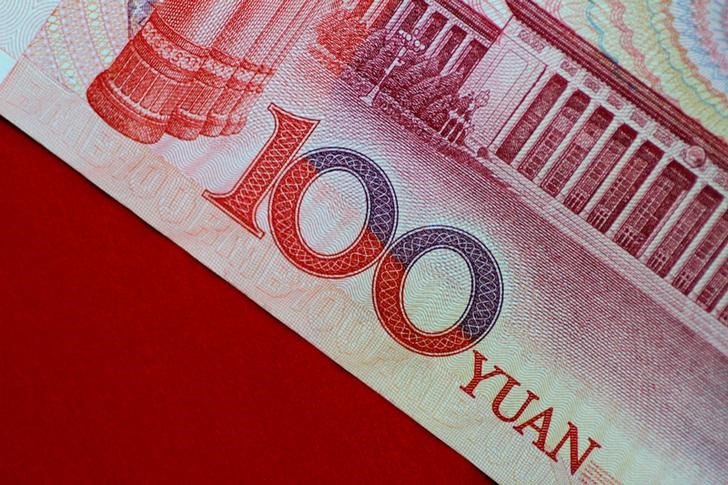By Samuel Shen and Andrew Galbraith
SHANGHAI (Reuters) - The yuan's surge this year has helped increase foreign purchases of Chinese bonds and stocks. Now Beijing appears to want to cool the currency and make it a two-way bet while still maintaining international appetites for China's assets.
The tide of capital gushing out after the 2015 stock market crash and 2016's market turbulence has reversed this year, as China has put up good economic numbers and the yuan has erased last year's 6.5 percent loss against the dollar.
With the yuan in a "trajectory of appreciation", said Yuanta Financial Holdings strategist Alvin Zhang, yuan-denominated assets have gotten "more and more attractive to overseas investors".
Also aiding inflows were MSCI's decision to include China stocks in its global indexes, and the weak dollar.
"People are more cautious toward the US dollar," Rene Buehlmann, Asia Pacific head of UBS Asset Management, said in Shanghai last week.
"Over time, they will realize that RMB (yuan) is a great diversifier in the portfolio," said Hong Kong-based Buehlmann, who has been relentlessly pitching global investors to buy Chinese bonds.
China's central bank, which earlier crushed yuan bears with a set of measures, now seems to feel the currency's climb has been too sharp. On Monday, it scrapped two rules intended to strength the yuan.
And on Tuesday, the midpoint for yuan onshore trading was set weaker than the previous day, ending an 11-day streak of stronger settings.
"China's central bank is sending a fresh signal, that it doesn't want to see one-way appreciation, especially rapid appreciation," said Tang Xiangbin, a researcher at China Minsheng Banking Corp. "Rather, it hopes the yuan can move sideways."
RISING DEMAND
Whatever happens with the yuan movement, capital market deregulation in China is likely to continue.
Reflecting rising demand for China's fixed income assets, foreign holdings of onshore bonds increased for a sixth straight month in August, reaching 497.8 billion yuan ($76.1 billion).
The flow was partly aided by the two-month-old Bond Connect scheme that allowed qualified overseas institutions to buy onshore bonds without quota - a move hailed by Beijing as a big step to open its capital markets.
Net purchases of mainland A-shares via the "Stock Connect" scheme increased for five months in a row to 27 billion yuan in August.
And under the Qualified Foreign Institutional Investor (QFII) scheme - another main channel for foreigners to access China's stock market - overseas holdings in Chinese listed companies jumped 18 percent during the second quarter to 111.3 billion yuan, according to Yuanta Financial Holdings.
Last week, British hedge fund Man Group (L:EMG) and Singapore's Fullerton Fund Management said they obtained regulatory licenses to launch private funds in China.
Fidelity International Ltd and UBS Asset Management received such licenses recently, marking an accelerated opening of China's fund market.
Buehlmann of UBS said he expected China to gradually open its capital markets and capital account so international investors "will have more ways to invest into the China market".

"I'm convinced that the RMB holdings of large sovereign banks, institutional investors would increase significantly," Buehlmann said.